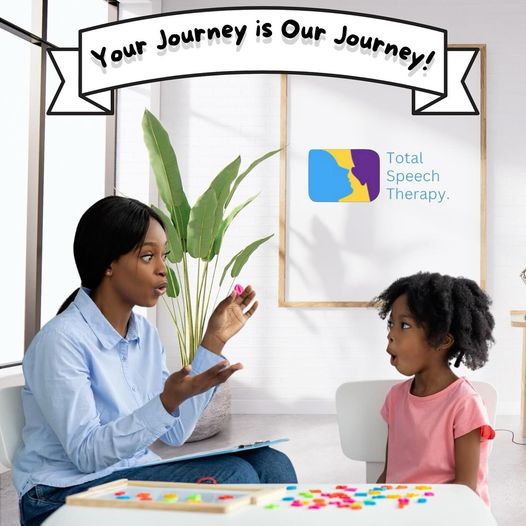In the realm of speech pathology, the journey towards healing encompasses more than just addressing the physical aspects of communication disorders. It delves into the holistic well-being of individuals, acknowledging the interconnectedness of mind, body, and spirit. Integrating various therapy approaches offers a comprehensive framework that caters to the diverse needs of clients, fostering a deeper level of healing and growth. In this blog, we explore the significance of holistic healing in speech pathology and the role of Total Speech Therapy in integrating multiple modalities for optimal outcomes.
Understanding Holistic Healing in Speech Pathology:
Holistic healing in speech pathology entails recognizing the intricate interplay between psychological, emotional, and physical factors that influence communication disorders. It transcends the traditional medical model by embracing a person-centered approach that addresses not only speech and language deficits but also considers the individual’s lifestyle, environment, and overall well-being.
Integrating Therapy Approaches:
Speech and Language Therapy: At the core of speech pathology lies the practice of speech and language therapy, which focuses on improving communication skills, articulation, fluency, and language comprehension. Through tailored interventions and exercises, speech-language pathologists (SLPs) help clients enhance their ability to express themselves effectively and understand others.
Cognitive Behavioral Therapy (CBT): Cognitive-behavioral approaches are valuable in addressing the emotional and psychological aspects of communication disorders, such as anxiety, depression, or low self-esteem. By identifying negative thought patterns and implementing coping strategies, clients can overcome psychological barriers that impede their progress in speech therapy.
Autism: Autism spectrum disorder (ASD) presents unique challenges in communication and social interaction. Speech pathologists employ specialized techniques and interventions to support individuals with ASD in developing communication skills, social pragmatics, and sensory integration.
Fluency and Stuttering: Stuttering is a common fluency disorder that affects speech flow and rhythm. Speech therapists use evidence-based techniques such as stuttering modification and fluency shaping to help individuals manage stuttering symptoms and improve communication confidence.
Articulation Speech: Articulation disorders involve difficulties in producing speech sounds correctly. Speech therapists work on strengthening speech muscles and teaching correct articulatory placement to improve speech clarity and intelligibility.
Auditory Processing: Auditory processing disorders affect how the brain interprets and processes auditory information. Speech pathologists implement auditory training exercises and strategies to improve auditory discrimination, comprehension, and processing speed.
Voice: Voice disorders encompass a range of conditions affecting vocal quality, pitch, and resonance. Voice therapy includes vocal exercises, vocal hygiene education, and vocal behavior modification techniques to restore and maintain vocal health.
Expressive and Receptive Language: Expressive and receptive language disorders involve difficulties in understanding and using language. Speech therapists employ language stimulation activities, augmentative and alternative communication (AAC) strategies, and language expansion techniques to enhance language skills.
Pragmatic Language: Pragmatic language disorders affect social communication skills, such as turn-taking, topic maintenance, and nonverbal cue interpretation. Therapy focuses on teaching social communication strategies and promoting social interaction skills in various contexts.
Sensory Integration: Sensory integration disorders impact sensory processing and modulation, affecting individuals’ ability to regulate sensory input effectively. Speech therapists collaborate with occupational therapists to address sensory integration challenges and create sensory-friendly environments for therapy.
Total Speech Therapy: Bridging the Gap with a Holistic Approach
Total Speech Therapy embodies the principles of holistic healing by offering a multidimensional approach that addresses the diverse needs of clients. Through a combination of evidence-based practices and complementary therapies, Total Speech Therapy aims to foster holistic well-being and empower individuals to reach their full communication potential.
Key Features of Total Speech Therapy:
Individualized Treatment Plans: Total Speech Therapy recognizes that each client is unique, with their own set of strengths, challenges, and goals. Therefore, treatment plans are tailored to the specific needs and preferences of the individual, ensuring a personalized approach to therapy.
Collaborative Care: Total Speech Therapy emphasizes collaboration and communication between clients, caregivers, and therapists. By fostering a supportive and inclusive environment, clients feel empowered to actively participate in their therapy journey and advocate for their needs.
Integrative Modalities: Total Speech Therapy integrates a variety of therapy modalities, including traditional speech and language therapy, cognitive-behavioral techniques, mindfulness practices, yoga, expressive arts, and nutritional counseling. By drawing from multiple disciplines, therapists can address the holistic needs of clients and enhance their overall well-being.
Empowerment and Education: In addition to therapy sessions, Total Speech Therapy provides education and resources to clients and caregivers, empowering them to take an active role in managing and optimizing communication health. By equipping individuals with knowledge and skills, they become better equipped to navigate challenges and sustain progress beyond therapy.
Continuous Evaluation and Adaptation: Total Speech Therapy employs a dynamic approach to treatment, continuously evaluating progress and adjusting interventions as needed. Therapists remain flexible and responsive to clients’ evolving needs, ensuring that therapy remains relevant and effective throughout the healing process.
Conclusion:
Holistic healing in speech pathology transcends the boundaries of traditional approaches, embracing a comprehensive framework that nurtures the mind, body, and spirit. By integrating a diverse range of therapy modalities, Total Speech Therapy embodies this holistic philosophy, empowering individuals to embark on a journey of self-discovery, growth, and communication empowerment. Through collaboration, compassion, and innovation, Total Speech Therapy paves the way for transformative healing and holistic well-being.







Leave a Reply